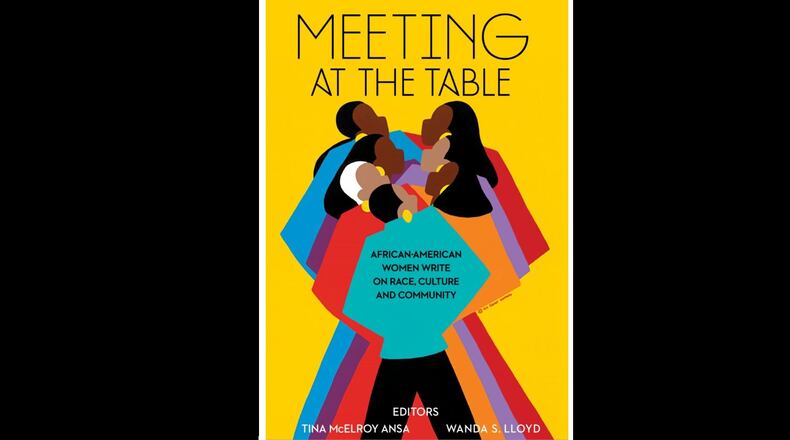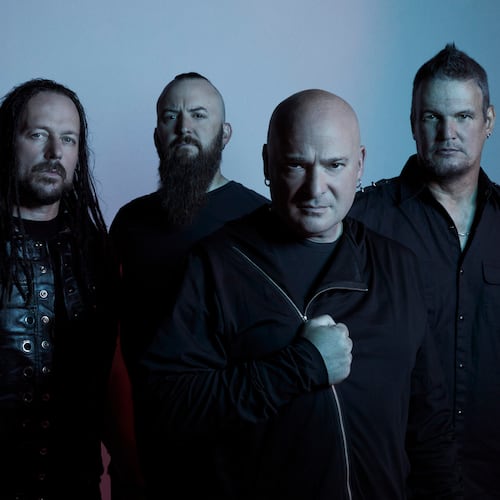There is something to be said about Black women from the South, according to hip-hop enthusiast Regina Bradley.
Having grown up in Albany, the now-Kennesaw State University assistant professor describes the experience through a set of Southern lady-like, coming of age commandments, where thou shalt smile sweetly at all times, never wear red lipstick or red nail polish, and know that boyfriends will be referred to as “lil” friends until at least a decade into marriage.
For Bradley, the ordeal of growing up as a Black girl in the South is shared but unique, stringing together experiences, societal expectations and rules that are all too familiar to many.
“There are so many legible and illegible things that Black women and girls do that’s only for us,” Bradley said. “You can have a conversation with a woman you don’t even know just by looking at her.”
The commandments are found in Bradley’s essay “Sum’um in My Spirit” alongside 14 other Black women essayists who contributed to the newly released anthology “Meeting at the Table: African-American Women Write on Race, Culture and Community.” Other contributors include actress Anika Noni Rose and Atlanta Mayor Keisha Lance Bottoms.
Published by Georgia-based publishing company DownSouth Press, the anthology was built in the wake of the deaths of Breonna Taylor, George Floyd and countless others. For acclaimed writers Tina McElroy Ansa and Wanda S. Lloyd, who spearheaded the project, the work came together as the black women’s response to those who are “eager to understand the origins and impacts of systemic racism, white privilege and implicit bias,” according to a release.
Credit: Handout
Credit: Handout
While the experience of Black womanhood is shared, Bradley and the other essayists write to remind readers that Black women are not a monolith.
“One of the things that I’m very adamant about in the way that I write is I want to make sure that one, I’m speaking my own truth, but also making sure that folks understand that Black women have a voice,” she said.
In a separate essay, Khadijah Robinson echoes Bradley’s sentiments. Also a product of the South having grown up in Savannah, Robinson writes about being the founder and owner of the digital company Nile, a black woman, and an attorney. Her hope for those who are reading her essay and the anthology is to truly see Black women.
“A single Black woman can have so many facets and so many intricacies and so many layers,” Robinson said. “And so I appreciate that we can bring together something like this that can show commonality and also show differences in experience and differences in thought that allow people to fully appreciate what we are and what we can be.”
In an essay titled, “Leaving Pieces of Myself at the Door,” Karen Hawkins shares her experience as a Black LGBTQ journalist. Atlanta Mayor Keisha Lance Bottoms pens a prayer for her children. Meanwhile, writer Jasmin Pittman Morrell’s essay speaks to the experience of what it means to be biracial.
Throughout the writing and editing process, the idea of bringing your whole self to the table kept appearing over and over again throughout the book, said Lloyd. “As black women, we often talk about how we sometimes share only parts of who we are,” she explains.
Through this book, Lloyd says Black women had a way to express themselves — a safe space.
“We don’t always talk freely about all of our parts. Tina and I wanted our essay contributors to feel good about bringing all parts of themselves to our table,” Lloyd said.
Although there was a short five-month turnaround from ideation to publication, authors and curators Ansa and Lloyd felt “Meeting at the Table” was an urgent matter — a resource to get into the hands of people who want to make a change in the world.
“This book will be a revelation for so many people—for non-Black folks who have thought about this before,” Ansa said. “There are people out there with goodwill and don’t know what to do, so I think this book is going to be a good guide and wonderful affirmation of women and Black Girl Magic.”
Ansa is a novelist, journalist (including copy editing for the Atlanta Constitution from 1971 to 1979), filmmaker and teacher. She is also the founder of DownSouth Press, which published the anthology. Her co-editor, Lloyd, is an author, journalist, former professor and champion for diversity. The two are Southern-bred with a friendship rooted in their time as students at Spelman College.
Credit: Stephen Morton
Credit: Stephen Morton
For essayist Regina Bradley, the work that Ansa and Lloyd are doing is “breaking ground for future voices to have these types of conversations without feeling like they’re being erased in favor of somebody making a profit.” Her hope is that “Sum’um in My Spirit” and the essays that surround it will be embraced, allowing more women to receive their flowers while they’re still living.
“Without Black women, where the hell would the world be?” she said.
BOOK INFORMATION
“Meeting at the Table”
Essayists include Regina Bradley, Keisha Lance Bottoms, Anika Noni Rose. Edited by Tina McElroy Ansa and Wanda S. Lloyd.
$26. Available at downsouthpress.com.
About the Author
Keep Reading
The Latest
Featured





